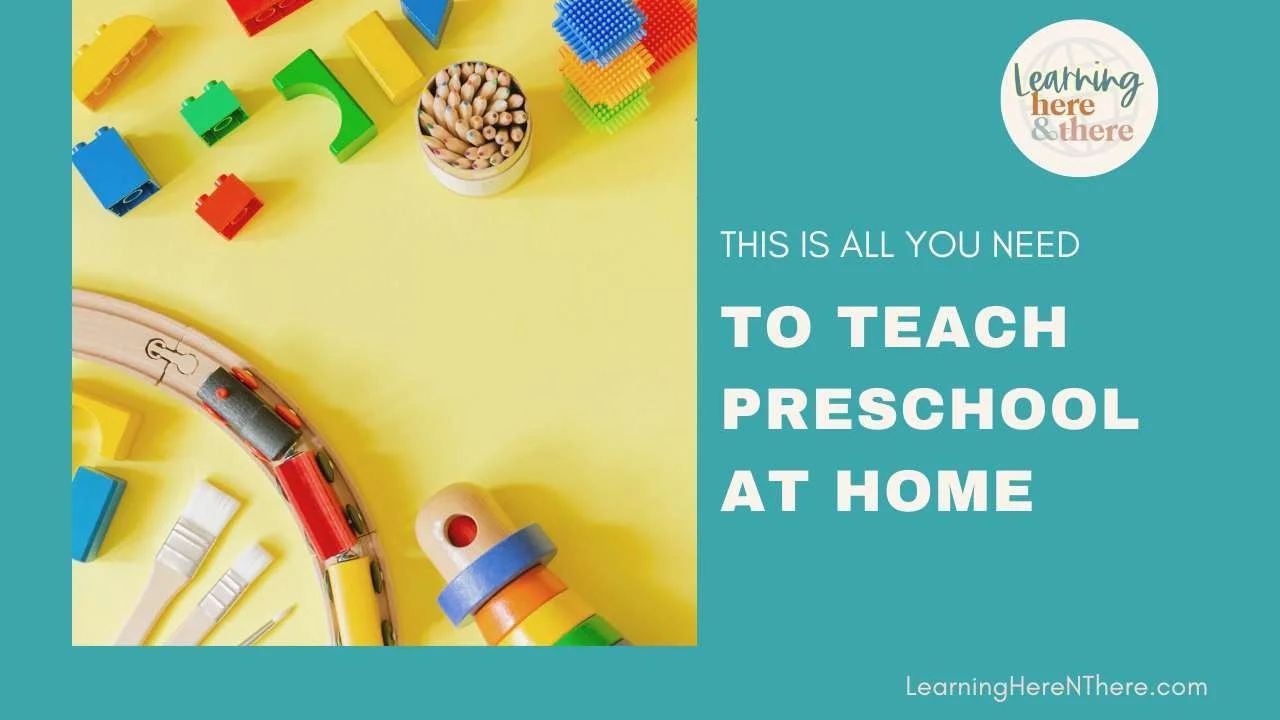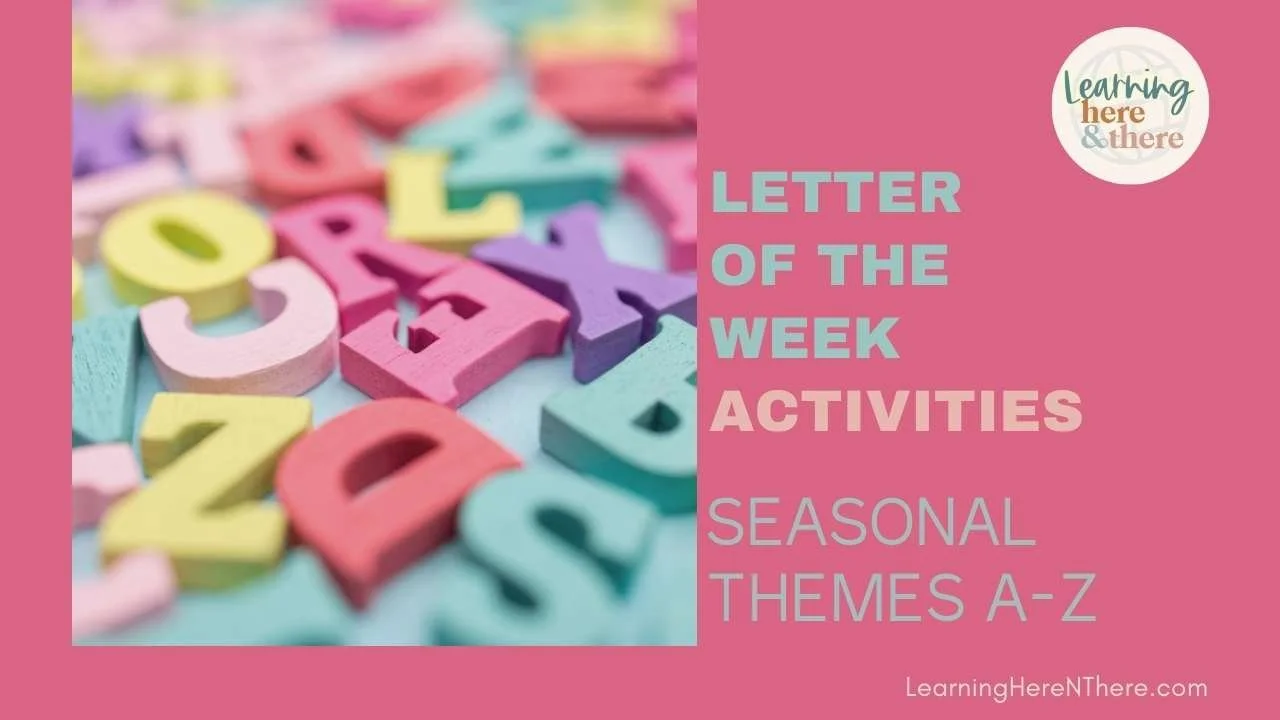Yes You CAN Teach Preschool at Home
Have you been seriously thinking about teaching preschool at home, but are worried you don't have what it takes? I'm here to encourage you and tell you...Yes, you can teach preschool at home!
You only need a few things to make it happen.
All you need to make it happen is:
A support group. Even if it's only one person (spouse, parent, friend, or even just an acquaintance from church). It's always a great idea to have someone to bounce ideas off of, to complain to, to hold you accountable, to encourage you, and celebrate your wins.
Some basic supplies. Preschool doesn't really require much in the way of supplies. You don't need a separate room full of school supplies devoted to preschool. You can accomplish a lot with some homemade playdough, washable markers, glue sticks and dot stickers. Items from nature (sticks, rocks, shells, etc...) present a lot of fun learning opportunities as well. Get creative.
A basic plan. You don't need any curriculum for preschool. But you should have some sort of basic plan to guide you along. Consider doing a Letter of the Week activity to work your way through the alphabet.
Some creativity...or a good Pinterest board. You can follow me on Pinterest to see all the preschool activities I've pinned.
A little faith in yourself. You don't need to be a certified teacher to teach your child. Your kids are constantly learning from you whether you realize it or not. Preschool just allows you to be more intentional about what they're learning.
Flexibility. Some routines or activities won't work. Don't keep using them just because you already planned them in. Don't hesitate to change direction mid-way through a lesson or theme. You can ditch a system or style that isn't working and try a new one at any point. Don't get stuck. Kids are amazing creatures, but we have to figure out what works for each individual one. And that takes a bit of trial and error.
A reality check. We are NOT aiming for mastery of any given concept. During the preschool years, you are simply EXPOSING your child(ren) to concepts. They will internalize ideas more and more each time you come back around and revisit it. So don't expect the kiddo to "get it" the first (or second or third) time through. Just keep working with that concept in different ways, and one day it will click.
Permission to celebrate the wins. Every tiny win counts. Don't be afraid to shout from the rooftops any time your child seems to finally understand something new. Remember how amazing it felt to watch your child take their first step? You'll feel that again, each time your child conquers a new learning concept. No matter how simple. It's amazing and makes all the hard work worth it. Celebrate it when it comes.
A basic understanding of preschoolers. In a nutshell, they have short attention spans and lots of energy. Plan activities accordingly. Keep quieter (sit-down) activities to a minimum, and incorporate a lot of active learning activities. Like my Learning Shapes with Hopscotch for example.
The ability to give yourself grace. There will be times when you attempt something that totally flops. That's ok. Learn from it, and move on. There will also be days when you just don't have the energy to do preschool or something else gets in the way. That's ok too. Just because you take a break from it, you don't have to give up completely. (I like to keep a few busy bags on hand ready to go for days like these.)
And really that's all you need to get started teaching preschool at home. Just remember to keep it fun. Don't aim for mastery at this point, just enjoy guiding your little one's exploration of the different concepts.
For extra guidance, be sure to subscribe (at the very bottom of the page) for more encouragement and fun learning ideas sent straight to your inbox.
Be sure to save this for later by pinning the image below. Thanks!





